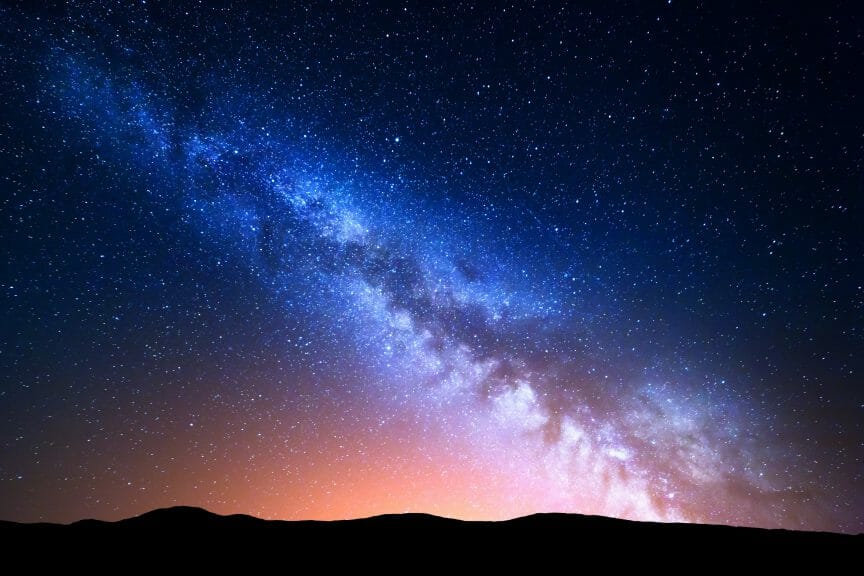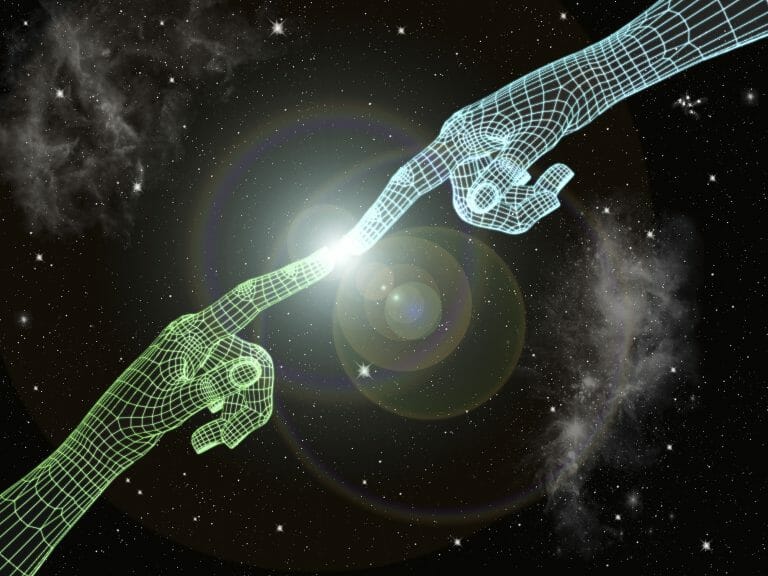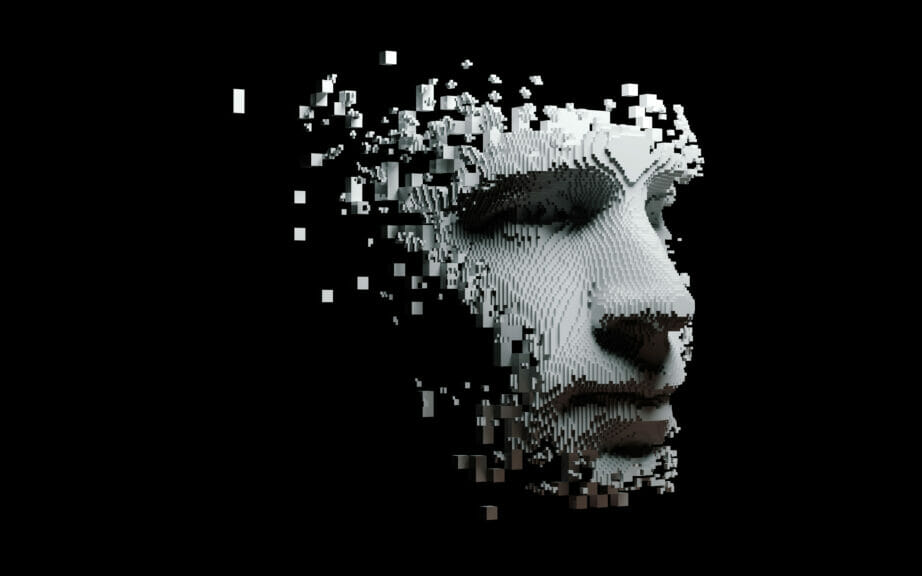Ok, maybe it’s not that simple. But the surprisingly popular theory that we are living in a simulation is becoming an increasingly regular topic of debate.
Elon Musk has been a particularly outspoken supporter, stating there is a “one in a billion chance that this is base reality”. Basically, it’s a statistical inevitability that we are but a green line of code drifting down a screen. This has also been supported, though in less radical terms, by Neil deGrasse Tyson, director of the Hayden Planetarium and owner of America’s most impressive space-themed tie collection. An article by the New Yorker states,
For more than a century, futurists and sci-fi writers have imagined that, someday, human beings will use technology to become “posthuman,” transcending the limits of the human condition… It’s possible to discern, in today’s world, the roots of this emerging posthuman future: the computer Watson has won “Jeopardy!”; virtual reality has arrived; a group of researchers has succeeded in simulating the nervous system of a roundworm in a body made of Legos; and, in September, Musk plans to announce his detailed plan for colonizing Mars.
New Yorker
Philosophical Foundation
Swedish philosopher Nick Bostrom popularized the modern version of this idea in his 2003 paper, ‘Are We Living in a Computer Simulation?’. In it, Bostrom suggests future human civilizations, with hugely advanced technological abilities, could decide to run “ancestor simulations”. These could include sentient beings, and could be done to learn more about the history of our species. Consequently, there would be more simulated than real beings ergo, we are likely to be one of the simulated ones. It’s pure stats, really.
However, it is by no means new. Philosophers from Descartes to Putnam have long grappled with the idea of a Matrix-like reality. Ancient Greek philosopher Plato’s ‘Theory of Forms’ asserts the idea that we must aim to transcend our false world and reality to reach a truer and purer reality behind it.
Behind this unreliable world of appearances is a world of permanence and reliability. Plato calls this more real (because permanent) world, the world of ‘Forms’ or ‘Ideas’… true and reliable knowledge rests only with those who can comprehend the true reality behind the world of everyday experience.
Philosophy Now
In the 3rd century BC, Chinese Taoist sage Zhuang Zhou famously wrote a fable about a man who falls asleep and dreams he is a butterfly. The dream is so real, he becomes unsure of whether he is a man dreaming he is a butterfly or a butterfly dreaming he is a man.

Arguments For
Statistical Inevitability
The argument for is built on two unproven, yet not wholly unreasonable, pillars. The first is the ability to simulate consciousness in a digital space. The second is the colossal computing powers future generations will likely possess. Elon Musk points out how “40 years ago we had pong”, and now we have photorealistic simulations. In light of this, Musk states,
If you assume any rate of improvement at all the games will become indistinguishable from reality… [Thus] It would seem to follow that the odds that we are in base reality is one in billions.
Elon Musk, Vox Media Conference
He goes on to say that we should hope our reality is a simulation:
Arguably we should hope that that’s true because otherwise if civilization stops advancing, that may be due to some calamitous event that erases civilization… Either we’re going to create simulations that are indistinguishable from reality or civilization will cease to exist. Those are the two options.
Elon Musk, Vox Media Conference
Answers Scientific Problems
This is less of an argument and more of an observation. The simulation hypothesis could solve some of the biggest, shall we say, conundrums facing the scientific community. Science writer Ross Anderston states,
If we live in a simulation, aliens might simply not be part of the program. In fact, it could be the case that one planetary civilisation is all that can be simulated, without running into computational capacity issues. Similarly, the failure of physicists to find unified theories of all the forces could be due to an inadequacy in the simulation.
Aeon
It could also go a step further in understanding the exact components that brought about the highly unlikely conditions of life in our universe:
The simulation hypothesis could even resolve the ‘fine-tuning’ problem: that the parameters of our Universe allow for life, but changing them might result in a lifeless cosmos. A simulated Universe could be designed for the eventual rise of life, or alternatively could be the outcome of a successful experiment in which many possible parameters were tested before life was possible. Cosmologists perform similar (albeit simpler) simulations now to see how likely our particular cosmos is from random starting conditions.
Aeon

Arguments Against
You Can’t Model Physics
Zohar Ringel and Dmitry Kovrizhin, theoretical physicists from the University of Oxford and the Hebrew University, discovered it’s impossible to model physics in our universe on a computer. They discovered this by applying possibility-generating computations known as Monte Carlo simulations to “quantum objects moving through various dimensions and found that classical systems cannot create the mathematics necessary to describe quantum systems” (PBS).
Wasted Complexity
Physicist Frank Wilczek argues the universe is essentially too unnecessarily complicated to be simulated. As Paul Sutter states, “Why would a conscious, intelligent designer of realities waste so many resources into making our world more complex than it needs to be?”
Paradox?
Now here’s a mind-boggler. Brian Eggleston, undergraduate systems analysis student at Stanford University in 2017, discovered a flaw in Bostrom’s theory:
The simulation argument relies on our descendants building superadvanced computers, because we are the only known species to build computers in the first place. Once our descendants build such computers, we’ll know for sure that we’re not among the simulated beings in those computers, because we can point to those computers and conclusively say we’re not inside them.
Space.com
Sufficiently confused yet?

Theology
Although these ideas have been around for centuries, many argue that it’s actually pointless – and not in a Beckett-Camus way. We may never know if we’re living in a simulation because any data we gather could itself be simulated evidence. Moreover, anyone who has discovered or will discover that we are indeed living in a simulation could simply be programmed to forget. Or the system may have been built to make it impossible to lift the curtain. Science writer Matthew Francis states,
If the program is good enough with no obvious ‘Easter eggs’ or hidden messages left by its designers, then any experiment we perform will return the same results whether we’re in a simulated cosmos or not. In this scenario, there’s no way we can ever tell we’re in a virtual world, no matter how convincing our favourite philosophers are on the matter
Aeon
If this is the case, the fierce debate surrounding an idea that can never be proven, or disproven, is somewhat similar to religion. And isn’t it essentially the same discussion? Whether or not there is an omnipotent creator of our universe who watches over us – be it a God or a future ancestor who wants to know why we let the Earth become a ball of fire. There is, of course, far more nuance than that. But I think it’s food for thought nonetheless.

Conclusion
Regardless of where you fall in the discussion, the truth is our simulated or non-simulated existence has no bearing on your day-to-day life. Or at least it shouldn’t. I don’t think we are in a simulated universe. I’m woefully underqualified, so I’ll base this conclusion solely on the idea that I don’t want to believe our ancestors would knowingly create a simulation that includes endless suffering.
Ask me on a day I’m feeling more pessimistic about the state of the world, and I may think differently.














